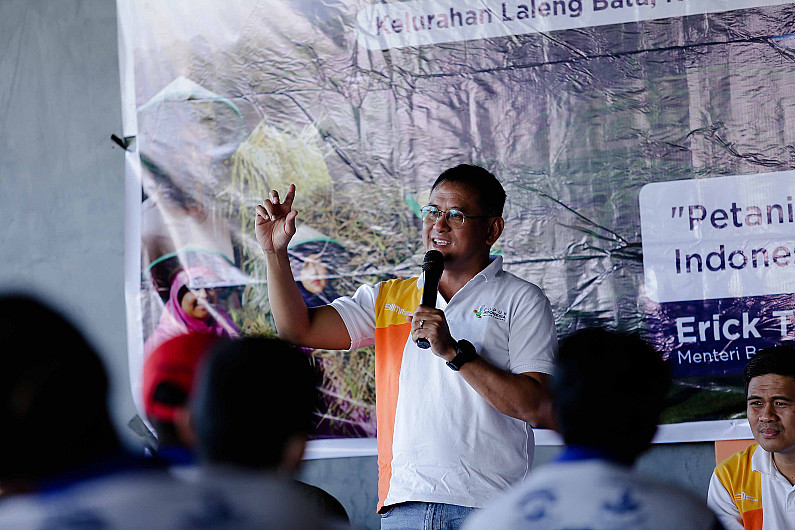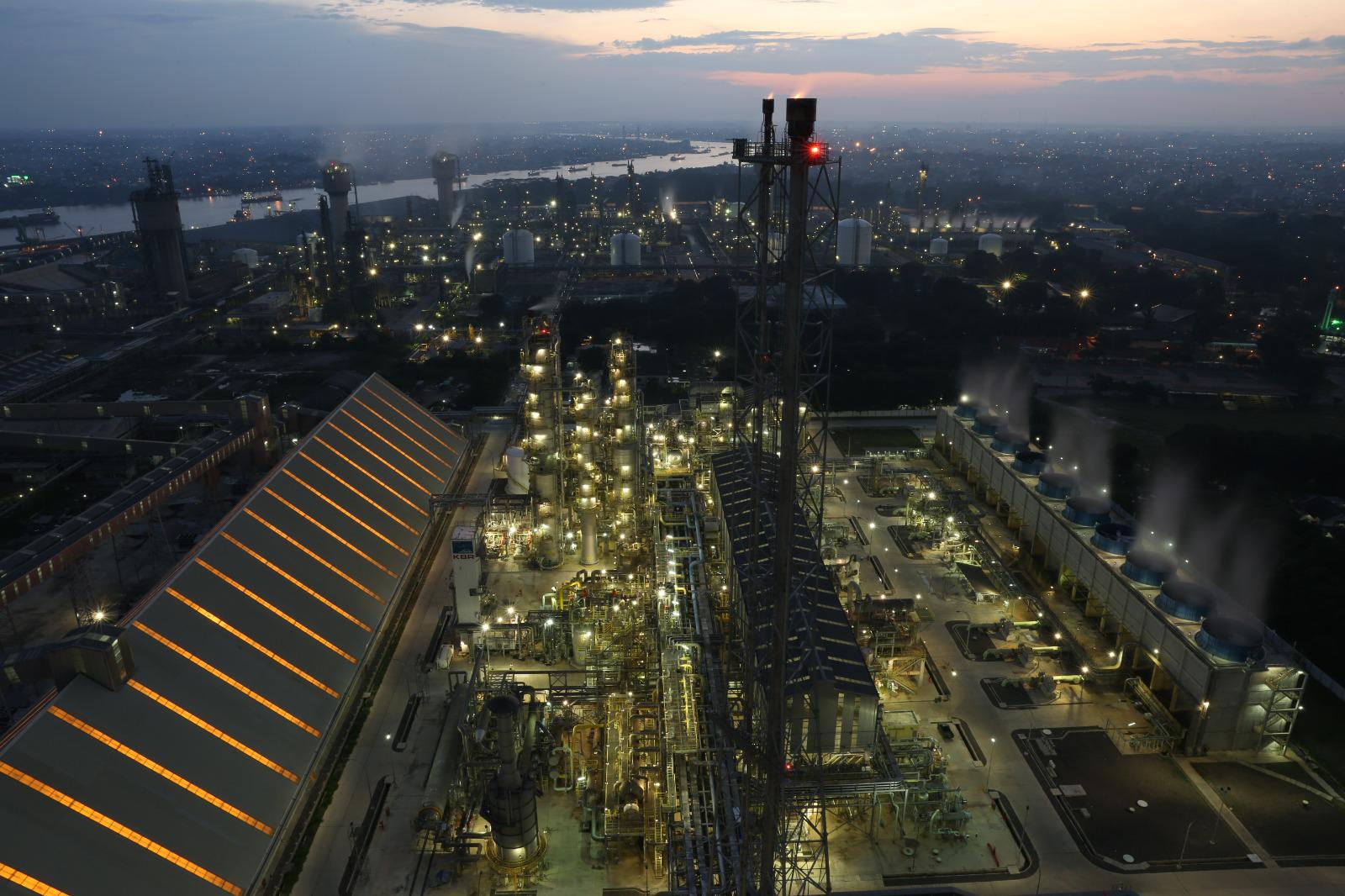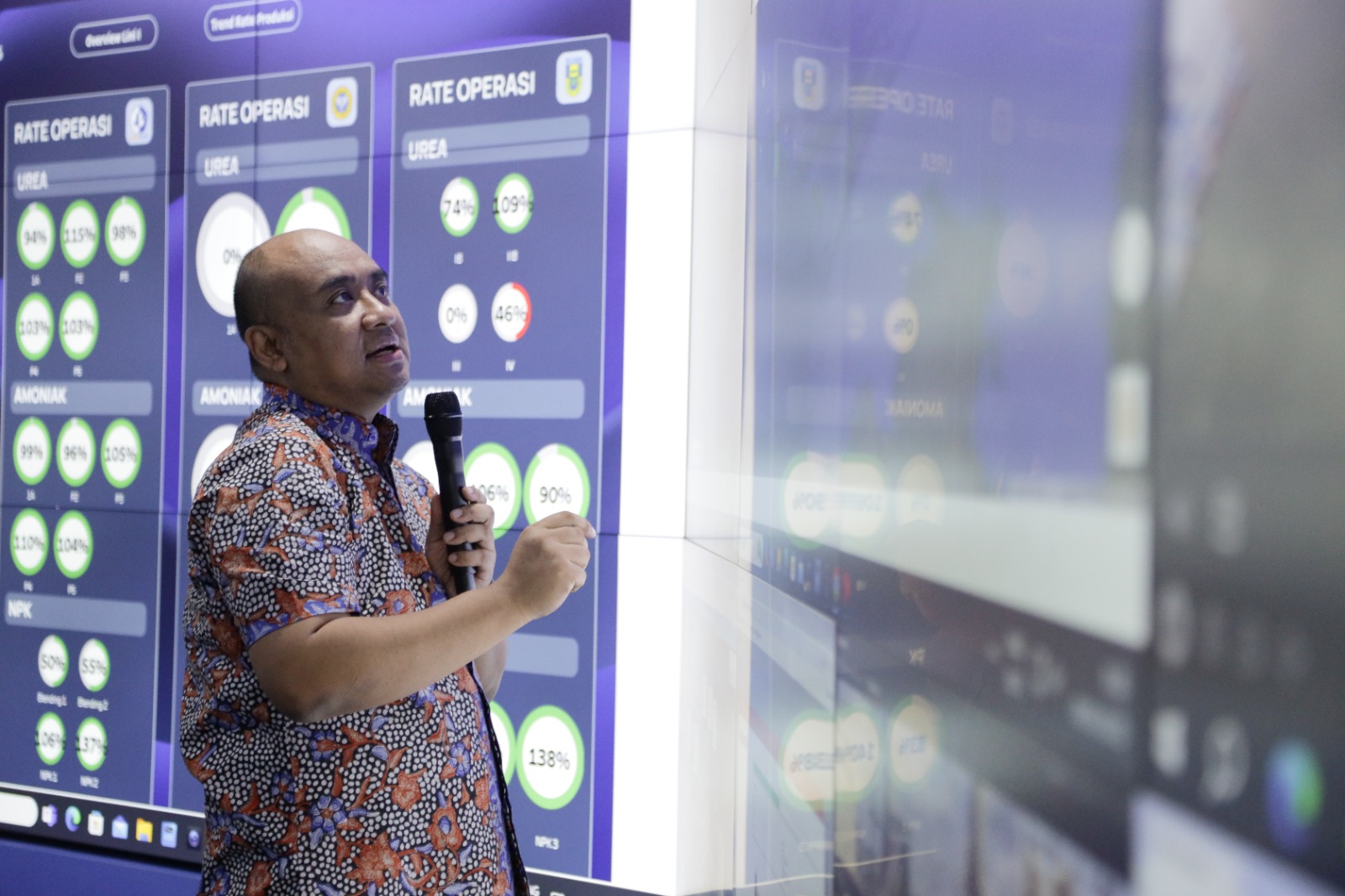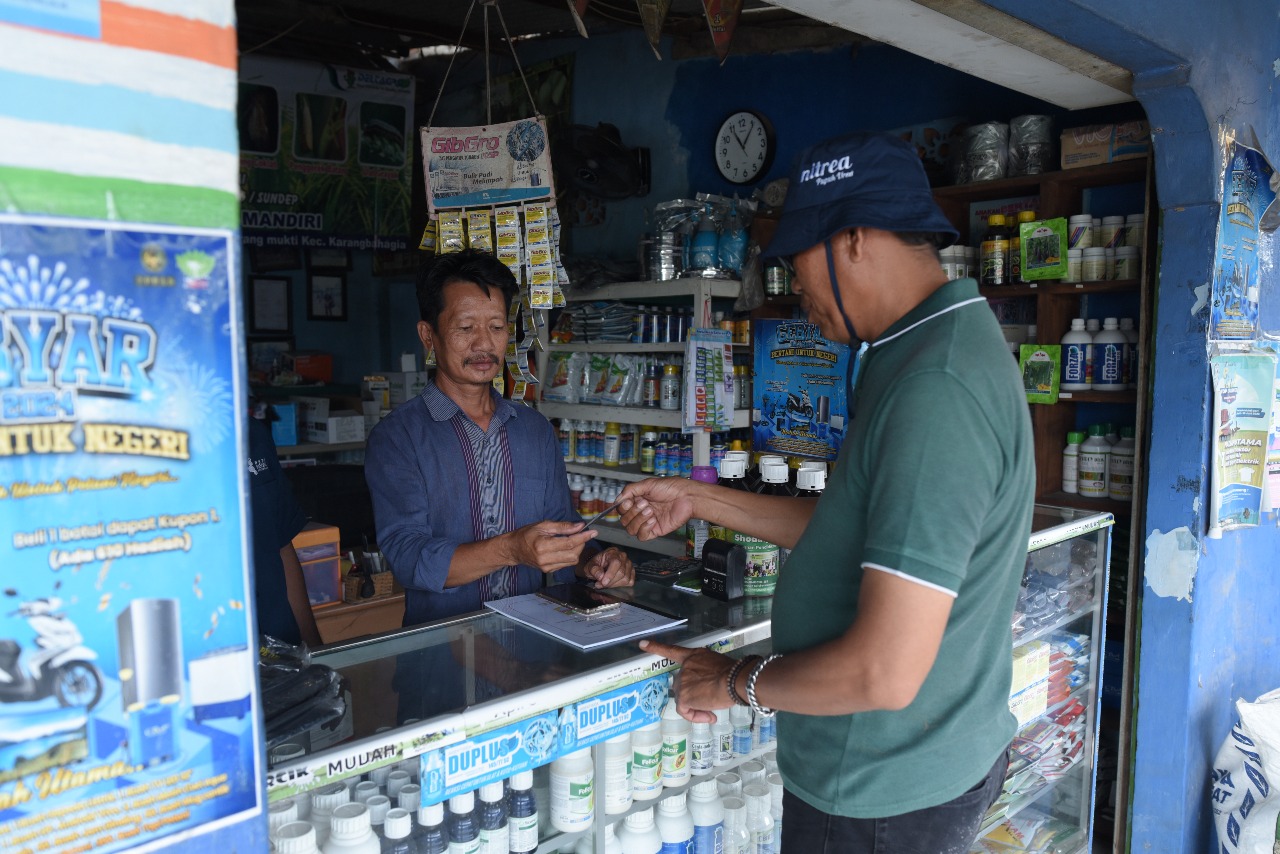Pupuk Indonesia Ajak Petani Padi Sukoharjo Gabung Program Makmur

SOLO - PT Pupuk Indonesia (Persero) mengajak petani padi di Desa Karangwuni, Kecamatan Polokarto, Kabupaten Sukoharjo, Jawa Tengah, untuk bergabung dalam program Makmur. Hal ini disampaikan langsung oleh Direktur Utama Pupuk Indonesia Rahmad Pribadi acara panen raya dan tanam padi Kementerian Pertanian di Jawa Tengah, Selasa (24/10/2023).
Rahmad mensosialisasikan langsung sekaligus mengajak petani padi bergabung program yang diluncurkan Menteri BUMN Erick Thohir pada 2021. Program ini menjadi solusi bagi petani dalam meningkatkan produktivitas dan pendapatan pertanian.
“Jadi kita punya program Makmur. Program ini menggunakan pupuk non subsidi dalam budidaya dan hasilnya atau untungnya petani lebih banyak,” demikian ungkap Rahmad.
Pupuk Indonesia mendukung intensifikasi pertanian dengan menyediakan pupuk non subsidi, memberikan rekomendasi pemupukan yang tepat, sehingga meningkatkan kualitas pengelolaan lahan melalui program Makmur. Hal ini menjawab pernyataan Waqib, salah satu petani yang tidak ingin terus bergantung pada pupuk bersubsidi.
Program dengan akronim Mari Kita Majukan Usaha Rakyat ini merupakan ekosistem yang menghubungkan petani dengan sejumlah perusahaan BUMN. Menurut Rahmad, petani yang bergabung dalam ekosistem Makmur akan mendapat banyak manfaat. Mulai dari bimbingan teknis dan budidaya, kepastian pasokan benih dan pupuk non subsidi, asuransi untuk melindungi dari ancaman gagal panen, kemudahan akses modal melalui perbankan, hingga jaminan pembelian hasil usaha tani dengan harga kompetitif.
“Jadi semua kelompok tani yang ikut program Makmur, program gratis ini langsung kita kirimkan pendamping, selain melakukan pendampingan juga untuk melakukan uji tanah untuk mengetahui seberapa banyak dosis pupuk yang dibutuhkan. Semua yang bergabung dalam kelompok Makmur produktivitasnya naik 30 persen, maka petani dapat membeli kebutuhan pupuk non subsidi dan hasilnya petani lebih sejahtera,” ungkap Rahmad.
Hingga September 2023, Pupuk Indonesia telah menjalankan program Makmur di atas lahan seluas 262.783 hektar atau 133 persen dari target 198.096 hektar. Adapun beberapa komoditas yang telah mengalami peningkatan produktivitas, seperti padi dengan rata-rata meningkat 14 persen, jagung rata-rata meningkat 23 persen, tebu meningkat rata-rata 27 persen, kopi meningkat rata-rata 48 persen, dan sawit meningkat rata-rata 7 persen.
----------------------------------------------------------------------------------------
Tentang Pupuk Indonesia
PT Pupuk Indonesia (Persero) merupakan produsen pupuk Urea terbesar di Asia dan 10 besar di dunia dengan total kapasitas produksi pabrik pupuk mencapai 13.95 juta ton per tahun. Dalam mengemban tugas bagi ketahanan pangan nasional, PT Pupuk Indonesia (Persero) dan 10 (sepuluh) anak perusahaannya merupakan produsen pupuk terbesar di Asia yang terdiri dari pupuk Urea, NPK, ZA, Organik, dan SP-36 yang tersebar di pulau Jawa, Sumatera dan Kalimantan. Memiliki fasilitas pendukung antara lain berupa pelabuhan dan sarananya, kapal angkutan, pergudangan, unit pengantongan pupuk dan perbengkelan yang memperlancar proses produksi dan distribusi pupuk. Kegiatan operasional Pupuk Indonesia Group bergerak di bidang industri pupuk, petrokimia dan agrokimia, steam (uap panas) dan listrik, pengangkutan dan distribusi, perdagangan serta EPC (Engineering, Procurement and Construction).
Sepuluh anak perusahaan dimaksud sebagai berikut: PT Petrokimia Gresik (PKG), PT Pupuk Kujang Cikampek (PKC), PT Pupuk Kalimantan Timur (PKT), PT Pupuk Iskandar Muda (PIM), PT Pupuk Sriwidjaja Palembang (PSP), PT Rekayasa Industri (Rekind), PT Pupuk Indonesia Niaga (PIN), PT Pupuk Indonesia Logistik (Pilog), PT Pupuk Indonesia Utilitas (PIU), dan PT Pupuk Indonesia Pangan (PIP). Informasi lebih lengkap tentang Pupuk Indonesia dapat dilihat di www.pupuk-indonesia.com







